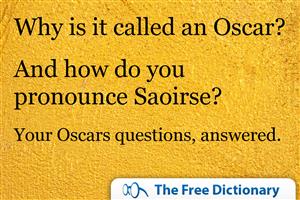The Farlex Grammar Book > English Grammar > Parts of Speech > Verbs > Auxiliary Verbs > Modal Auxiliary Verbs > Modal Auxiliary Verbs - May
Modal Auxiliary Verbs - May
Definition
The modal verb may is used to ask, grant, or describe permission; to politely offer to do something for someone; to express the possibility of something happening or occurring; or to express a wish or desire that something will be the case in the future. We can also use may as a rhetorical device to express or introduce an opinion about something.
Asking or granting permission
May is very commonly used to express or ask for permission to do something. There are other ways to do this (by using the modals can or could, for instance), but may is considered the most polite and formally correct way to do so. For example:
- “May I borrow your pen, please?”
- “May we ask you some questions about your experience?”
- “General, you may fire when ready.”
- “She may invite one or two friends, but no more than that.”
- “May we be frank with you, Tom?”
- “Students may not leave the class once their exams are complete.”
Making a polite offer
Like can, we can use may to offer do something for someone else, though it is generally a more polite, formal way of doing so. For example:
- “May I help you set the table?”
- “May we be of assistance in any way?”
Expressing possibility
Another common use of may is to express the possibility that something will happen or occur in the near future, especially when that possibility is uncertain. For instance:
- “I’m worried that it may start raining soon.”
- “We may run into some problems down the line that we didn’t expect.”
- “I may be coming home for the winter break, depending on the cost of a plane ticket.”
- “Although we may see things improve in the future, there’s no guarantee at the moment.”
- “There may not be any issues at all; we’ll just have to see.”
Expressing wishes for the future
May is also used in more formal language to express a wish or desire that something will be the case in the future. When used in this way, may is inverted with the subject, as in:
- “May you both have a long, happy life together.”
- “May you be safe in your journey home.”
- “We’ve had great success this year; may we continue to do so for years to come.”
- “May this newfound peace remain forever between our two countries.”
As a rhetorical device
Sometimes, we use may in this way as a rhetorical device to politely introduce or emphasize an opinion or sentiment about something, in which case we invert may with the subject. For instance:
- “May I just say, this has been the most wonderful experience of my life.”
- “May we be clear that our firm will not be involved in such a dubious plan.”
- “May I be frank: this is not what I was hoping for.”
Note that we can accomplish the same thing by using the verbs let or allow instead, as in:
- “Let me be clear: this decision is in no way a reflection on the quality of your work.”
- “Allow us to say, we were greatly impressed by your performance.”
May not vs. Mayn’t (vs. Can’t)
Grammatically, it is not technically incorrect to contract may not into the single-word mayn’t. For instance:
- “You mayn’t wish to share these details with others.”
- “No, you mayn’t go to the dinner unaccompanied.”
However, this has become very rare in modern English, and generally only occurs in colloquial usage. In declarative sentences, it is much more common to use the two words separately, as in:
- “Employees may not use company computers for recreational purposes.”
- “There may not be much we can do to prevent such problems from occurring.”
It is also uncommon, though, to use may not in questions, in which may is inverted with the subject. The resulting construction (e.g., “may I not” or “may we not”) sounds overly formal in day-to-day speech and writing. Because of this, it is much more common to use the contraction can’t instead, as in:
- “Can’t we stay for a little while longer?”
- “Can’t I bring a friend along with me?”
Get all volumes of The Farlex Grammar Book in paperback or eBook.

